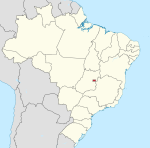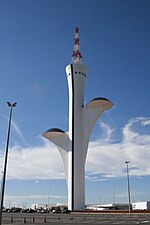The University of Brasília (Portuguese: Universidade de Brasília, UnB) is a federal public university in Brasília, the capital of Brazil. It was founded in 1960 and has since consistently been named among the top five Brazilian universities and the top fifteen universities in South America by Times Higher Education (THE).
Created under the utopian vision of educator Anísio Teixeira and anthropology professor Darcy Ribeiro in 1962, the University of Brasília (UnB) is located in the centre of Brazil’s capital city, on the banks of the Paranoá Lake.
There are four campuses: the Darcy Ribeiro campus (regarded as the UnB’s nucleus), the Ceilândia, Gama and Planaltina campuses. Oscar Niemeyer, one of Modernism’s most feted architects, designed UnB’s main building, the Central Institute of Sciences and was also a key player in the university’s founding.
Its strengths lie in its economics, international affairs and political science courses but its general teaching, research and outreach programs have made it one of Brazil’s most well respected universities. Comprising 26 faculties and schools, with 18 specialised research centres, there are over 105 undergraduate programs, some of which are evening or distance learning-based. It also offers 147 graduate degree programs and 22 specialist programs.
UnB also boasts a University Hospital, a veterinary hospital, a restaurant and the Fazenda Água Limpa, a clean water farm just outside Brasilía; where forestry, agricultural and ecological research is undertaken on the university’s behalf.
Relying on exchange programmes and networking with international organisations and post-secondary institutions, UnB administration and the Advisory Committee for International Affairs are positing it to the world as one of the best universities in Brazil.
It admits undergraduate and post-graduate students via an yearly entrance exam, known in Brazil as vestibular and through ENEM and is most renowned for its courses in economics, international affairs, law, anthropology, mathematics and political science. Its Central Library is home to Midwestern Brazil's largest archive and is used by research and federal employees from all over the country
UnB offers 114 courses recognized by the Ministry of Education.












